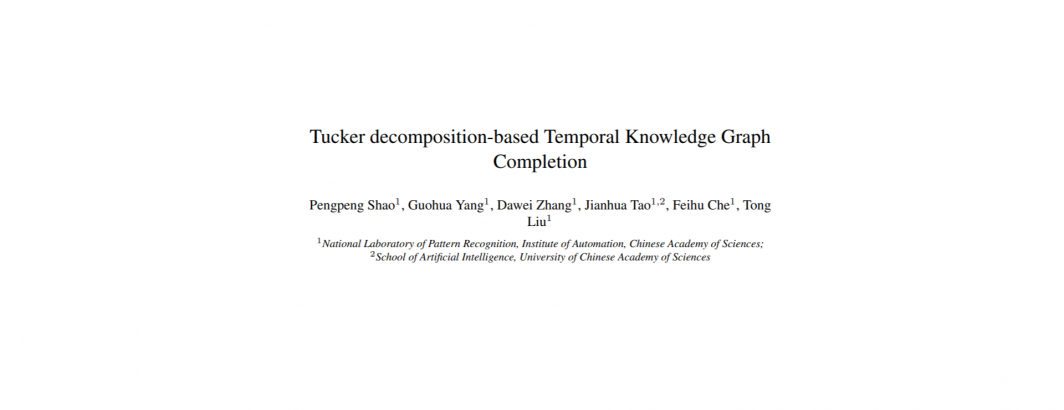
This paper by researchers at the Chinese Academy of Sciences uses GDELT to explore temporal knowledge completion:
Knowledge graphs have been demonstrated to be an effective tool for numerous intelligent applications. However, a large amount of valuable knowledge still exists implicitly in the knowledge graphs. To enrich the existing knowledge graphs, recent years witness that many algorithms for link prediction and knowledge graphs embedding have been designed to infer new facts. But most of these studies focus on the static knowledge graphs and ignore the temporal information that reflects the validity of knowledge. Developing the model for temporal knowledge graphs completion is an increasingly important task. In this paper, we build a new tensor decomposition model for temporal knowledge graphs completion inspired by the Tucker decomposition of order 4 tensor. We demonstrate that the proposed model is fully expressive and report state-of-the-art results for several public benchmarks. Additionally, we present several regularization schemes to improve the strategy and study their impact on the proposed model. Experimental studies on three temporal datasets (i.e. ICEWS2014, ICEWS2005-15, GDELT) justify our design and demonstrate that our model outperforms baselines with an explicit margin on link prediction task.